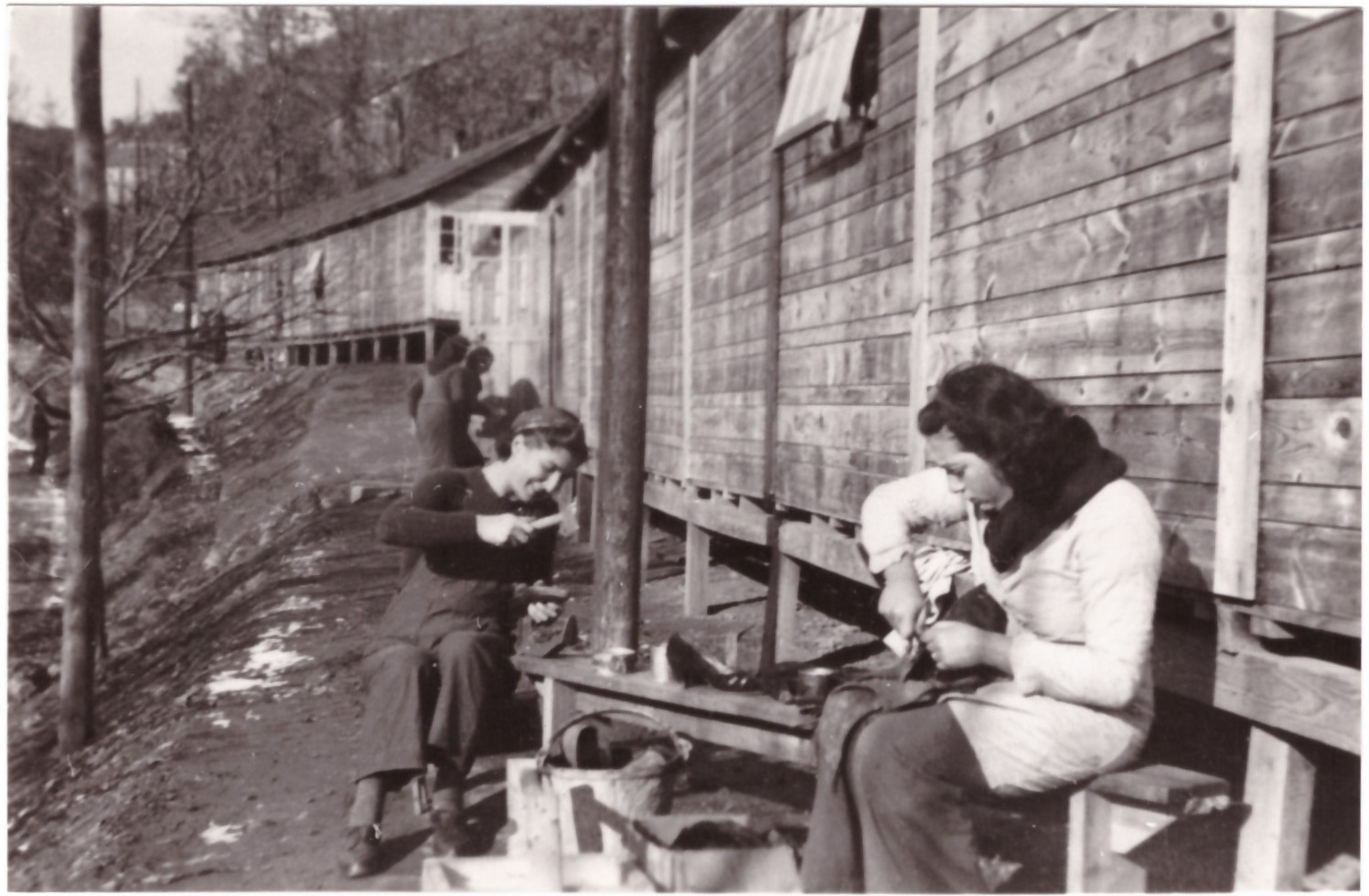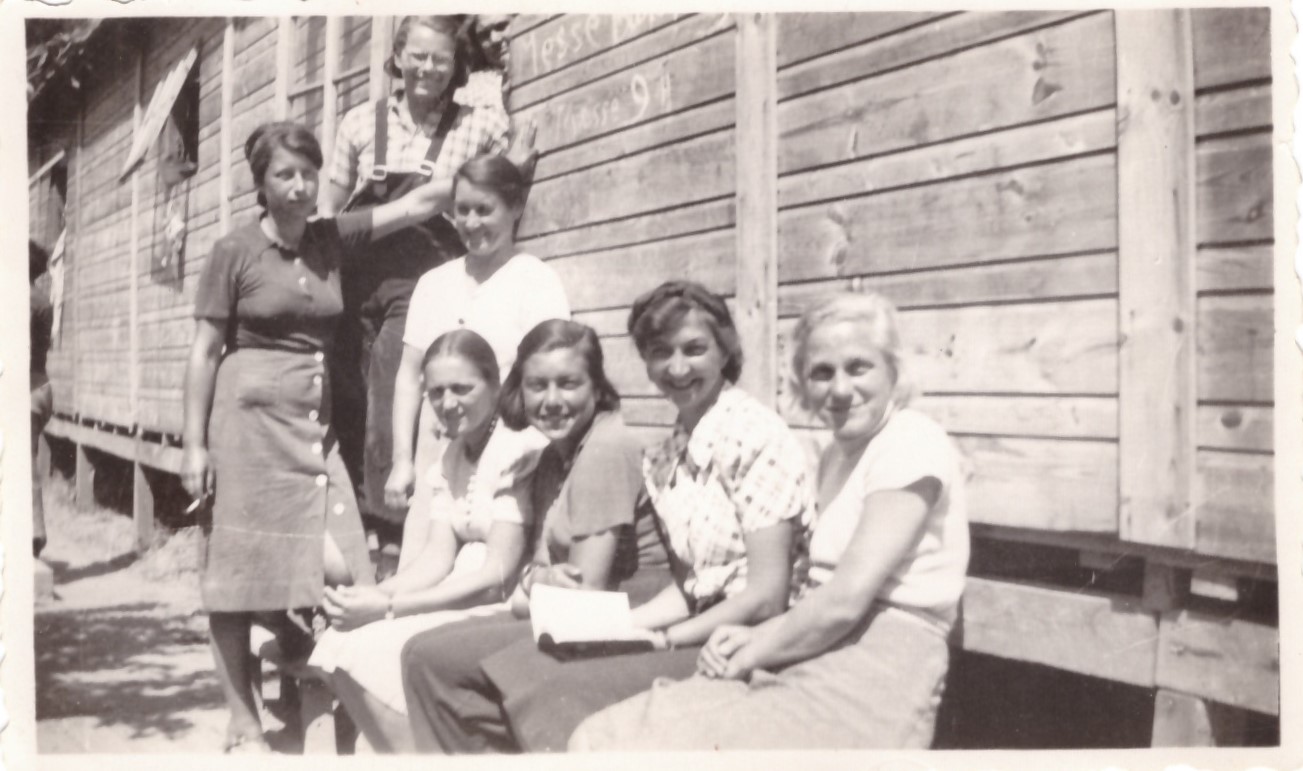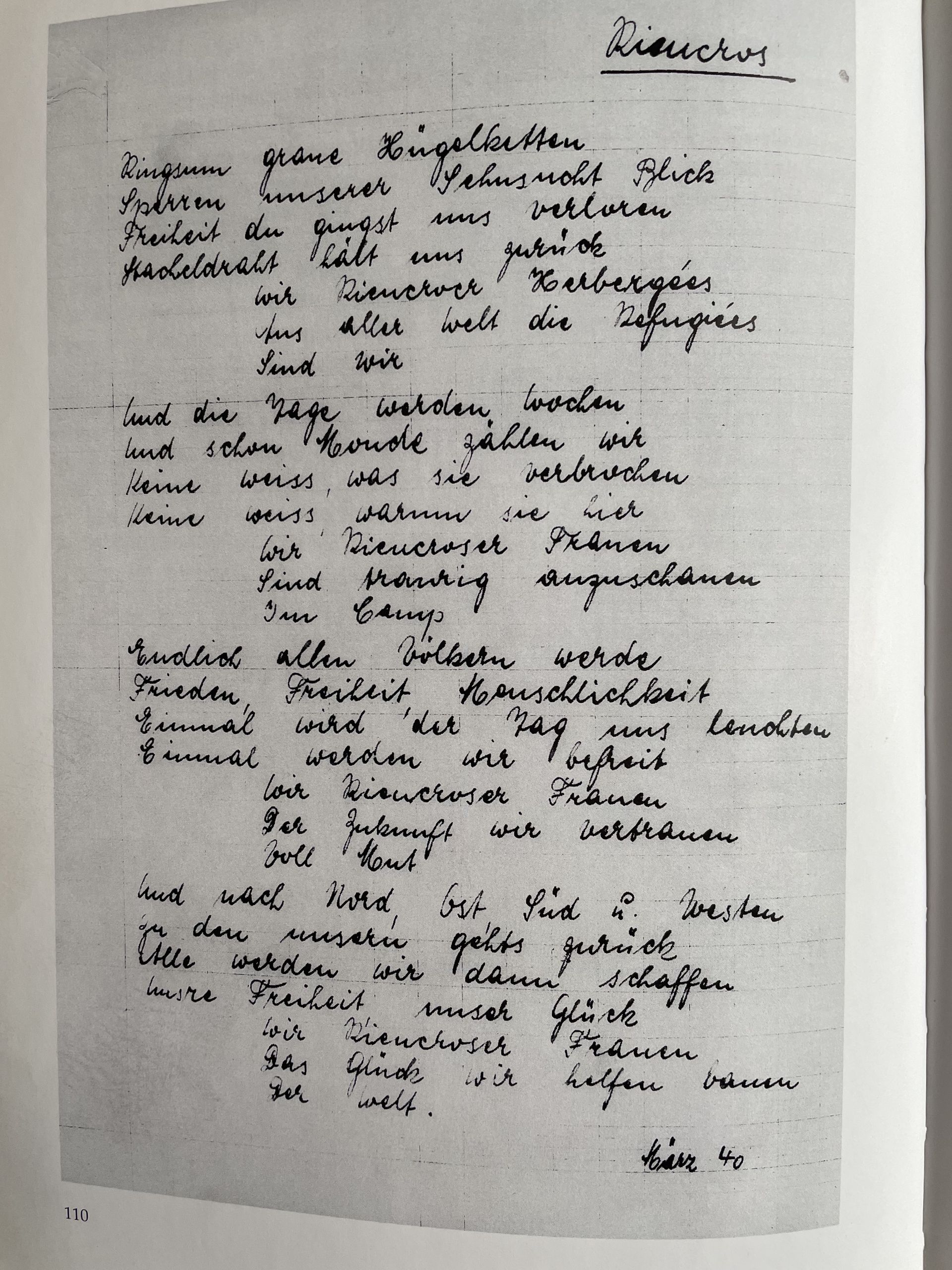From Rieucros to Ravensbrück: resistance by women in camps
After 1933, numerous people persecuted in Europe because of their political work or their “racial affiliation” sought refuge in France. Over the course of the 1930s, they were monitored as part of an increasingly repressive immigration policy and some of them were interned in camps as “undesirables” (“indésirables”) from 1939, including women. The first internment camp for “dangerous foreigners” had already been set up in January 1939. In autumn 1939, this place, Rieucros in the Lozère department south of the Massif Central, became a women-only camp.
Women of all nationalities were interned here, including numerous German and Austrian communists, Spanish fighters and, from December 1939, French women. The women were considered “particularly dangerous” due to their political activities. Officially, however, their internment was often justified on the grounds of deviant behaviour and sexual permissiveness. The shared experiences of these women inspired them to take numerous actions to formulate their political convictions and mobilise the women’s spirit of resistance.
For example, they organised a diverse cultural life. Initially, some of the responsible local authorities were sympathetic to the women’s activities. In some cases, both the guards and visitors from outside took part.
This included a celebration of International Women’s Day on 8 March 1940, in which the interned women showed their solidarity with the fight for equal rights and the right to vote for women. Various handicrafts and works of art produced in the camp were exhibited to mark the occasion. According to a diary written in the camp: “A tremendously beautiful exhibition material came together, not only beautiful handicrafts, but also very pretty pictures, silhouettes, paintings and sculptures. All the visitors were delighted and it was a real success. On Sunday afternoon there was a theatre performance with great participation from all nationalities.” Self-written poems were recited in which the women expressed their political self-image. One poem, written by the actress Steffie Spira, evoked the fighting spirit of the “Rieucros women”. It reads in a pathetic style that is explained by the context: “We women from all countries, we want to change the world”.
Many of these women were subsequently able to escape the camp and joined the resistance in France, including the German communist Dora Davidsohn. Some were arrested and deported to the Ravensbrück women’s concentration camp in Germany. Here, too, the women developed numerous activities in which they expressed their spirit of resistance. One particularly prominent example is the collectively composed operetta “Le Verfügbar aux enfers”, a unique historical testimony and artistic document.
Mechthild Gilzmer




